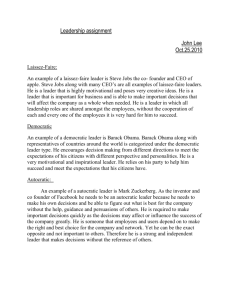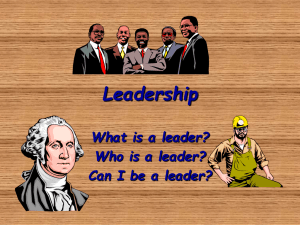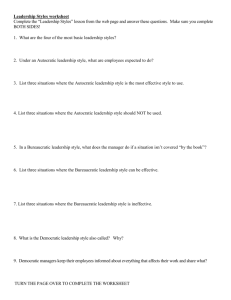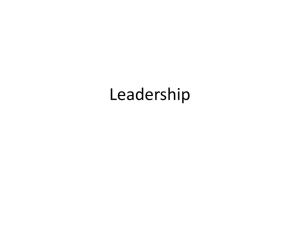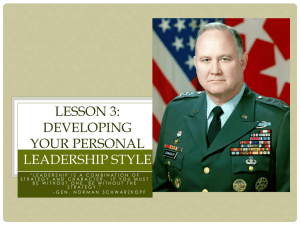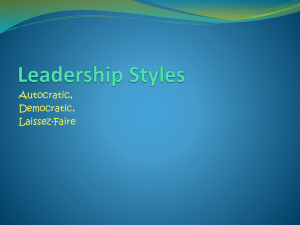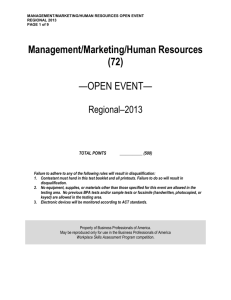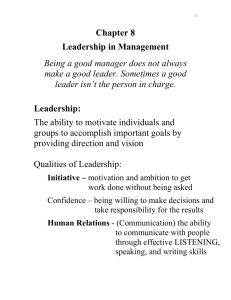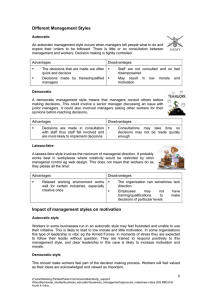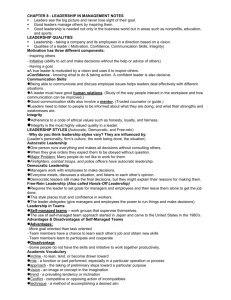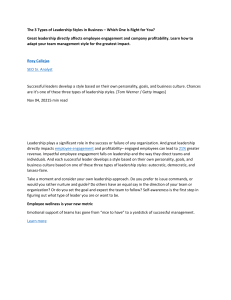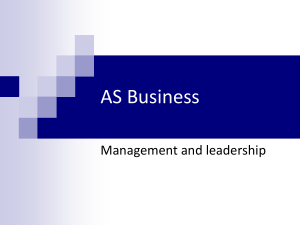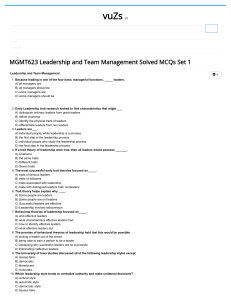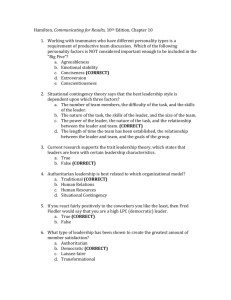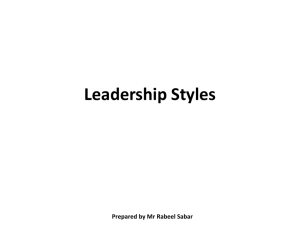Leadership Styles Mark and Alex
advertisement
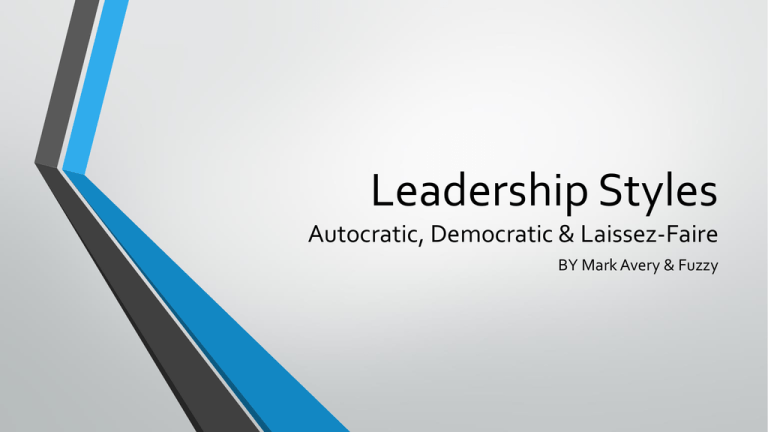
Leadership Styles Autocratic, Democratic & Laissez-Faire BY Mark Avery & Fuzzy • • Autocratic Leadership Style Autocratic leadership Is a leadership style in which decisions that effect the business are made without consulting employees and their opinions. It is based on the principle that there is only “one” best way of doing things. Common Features • • • • Staff perform simple repetitive tasks Single skilling Task specialisation Division of labour Democratic Leadership Style • A democratic leadership style is a leadership style in which employees have a say and input into decisions that effect the business. It allows workers a high degree of participation in the decision making process as well as open communication channels between workers and management. • Common Features • • Leaders encouraging employee participation in decision making Expertise and information shared between management and employees Laissez-Faire Leadership Style • French for “let it be”. Laissez-Faire is when leaders delegate the employees the authority to make decisions without necessarily consulting the manager. • This leadership style is prominent in research based organisations. • Common Features • • Employees making their own judgments and determine what needs to be done and how to do it. Entire workforce sharing organisation’s mission to move towards a common goal Adaptive Leadership Style • • Adaptive leadership style is a leadership style that can switch between the previous three depending on the situation. Some examples include: • • • • Using autocratic style on a new employee who is just learning the job. Using a democratic style with a team of workers who know their job Using laissez-faire style with a worker who knows more about the job than you Using all three: telling employees that a procedure is not working correctly and a new one must be established (autocratic). Asking for their ideas and input on creating a new procedure (democratic). Delegating tasks in order to implement the new procedure (laissez-faire). Forces That Influence Leadership Style • • • • • • • How much time is available Relationships based on respect and trust or distrust Who has the information How well employees are trained Internal conflicts Stress levels Type of task
